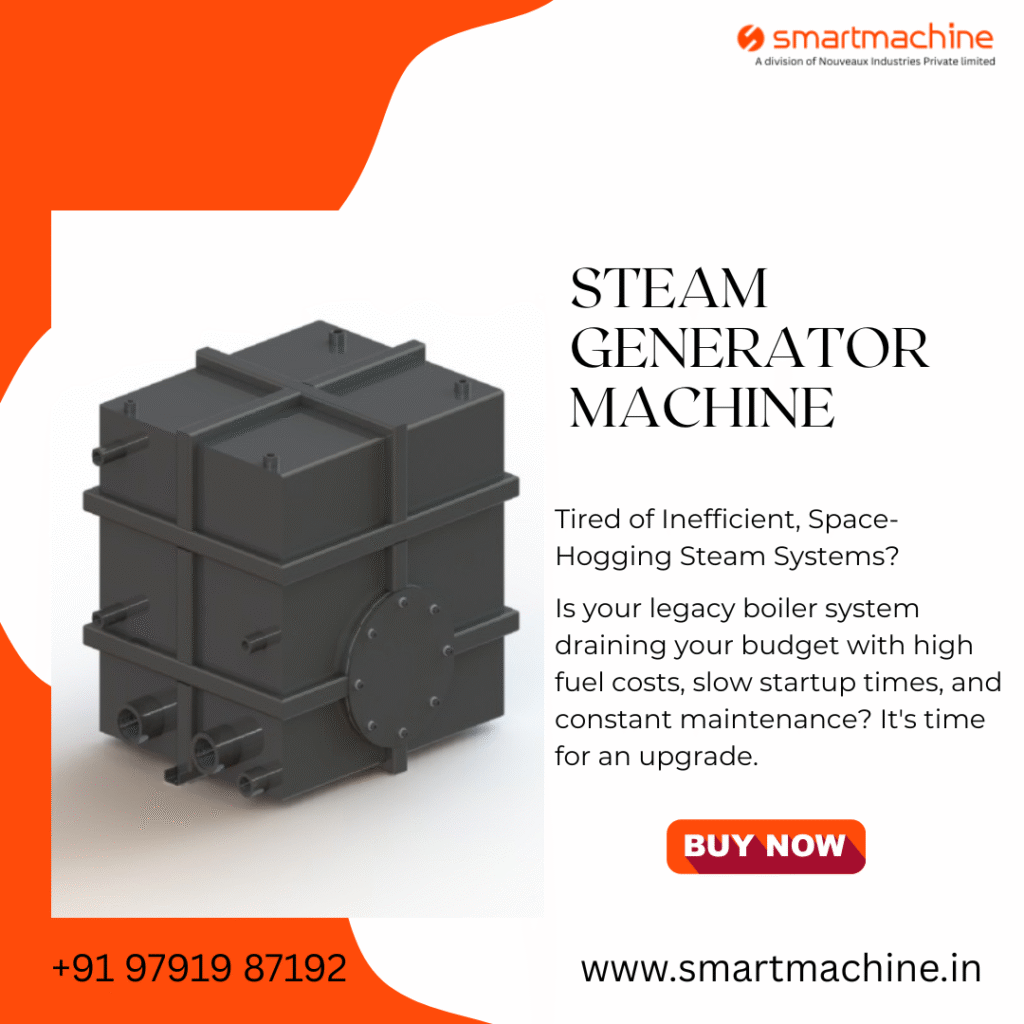In the world of industrial processes, manufacturing, and even modern wellness, few machines are as versatile and critical as the steam generator. This powerhouse is the unseen force behind everything from sterilizing medical equipment to smoothing wrinkles in fabric and even powering massive turbines.
But what exactly is a steam generator machine, how does it differ from a traditional boiler, and why is it the preferred choice for so many industries? Let’s dive into the world of efficient steam production.
What is a Steam Generator Machine?
At its core, a steam generator is a specialized device designed to produce steam for various applications. However, unlike large, traditional fire-tube or water-tube boilers that store large volumes of water, a steam generator is a forced-flow once-through system. This means water is pumped through a single continuous coil and is converted to steam in one pass, on demand.
This fundamental difference in design leads to a host of advantages that make steam generators incredibly efficient and responsive.
Key Advantages of Modern Steam Generators
1. Compact Size and Rapid Start-Up
Traditional boilers are large, pressure vessels that require significant space and a long time to heat up a large mass of water. Steam generators are remarkably compact due to their coil-based design. This allows them to generate steam within minutes, not hours, leading to greater operational flexibility and energy savings, especially for intermittent processes.
2. High Efficiency and Lower Operating Costs
The once-through design minimizes heat loss. Water is converted to steam with minimal excess energy wasted. Many modern steam generators also feature advanced heat recovery systems and precise control over fuel and water input, maximizing efficiency and significantly reducing fuel and water consumption compared to traditional boilers.
3. Enhanced Safety
Steam generators hold a very small amount of water at any given time. This drastically reduces the risk associated with a pressure vessel explosion, a primary safety concern with large boilers. Their smaller footprint and safer operation often mean they face less stringent regulatory requirements, simplifying installation and operation.
4. Superior Steam Quality
Steam quality—measured by its dryness (absence of water droplets) and purity—is crucial for many applications. Steam generators excel at producing high-quality, dry saturated steam. This is essential for processes like sterilization, food processing, and humidification, where water droplets could contaminate products or damage equipment.

5. Scalability and Modularity
If your steam demand increases, you can often simply add another steam generator module rather than replacing one massive boiler. This modular approach provides excellent scalability, redundancy (if one unit goes down, others can keep running), and the ability to match steam output precisely to demand, further enhancing efficiency.
Common Applications of Steam Generators
The versatility of steam generators makes them indispensable across a wide range of sectors:
- Healthcare & Biotechnology: For sterilizing surgical instruments, laboratory glassware, and other equipment in autoclaves and sterilizers. The high-quality, pure steam is non-negotiable here.
- Food & Beverage Processing: Used in cooking, peeling, pasteurization, cleaning, and sanitization (CIP – Clean-in-Place) processes.
- Commercial Laundries: Providing steam for ironing, pressing, and drying in large-scale laundry operations, such as those in hotels and hospitals.
- Manufacturing & Industrial Processes: For vulcanizing rubber, curing composites, processing textiles, and providing heat for chemical reactions.
- Humidification: Precisely controlling humidity in critical environments like museums, data centers, manufacturing clean rooms, and agricultural greenhouses.
- Energy & Power: While larger than the packaged type, some power plants use massive steam generators to create steam that drives turbines for electricity generation.
Steam Generator vs. Traditional Boiler: Which is Right for You?
The choice between a steam generator and a boiler often comes down to your specific needs:
- Choose a Steam Generator if: You need steam quickly and intermittently, have limited space, prioritize high efficiency and safety, require high-quality steam, and have a demand that can be met by a modular system.
- Choose a Traditional Boiler if: You have a very large, constant, and continuous demand for steam (e.g., for heating a vast campus or powering a large industrial plant) and have the space and infrastructure to support a large pressure vessel system.
Conclusion: The Efficient Modern Choice
The steam generator machine represents a significant evolution in steam production technology. Its compact design, rapid response time, exceptional efficiency, and superior safety profile have made it the go-to solution for a multitude of modern applications where reliability and precision are paramount.
Whether you’re ensuring the sterility of medical tools, crafting the perfect food product, or pressing a thousand hotel linens, investing in the right steam generator is key to optimizing your process, reducing your overhead, and ensuring the highest quality output.
Ready to explore your options? Consulting with an experienced supplier is the best next step to determine the precise capacity, fuel type (electric, gas, oil), and features your operation requires.
